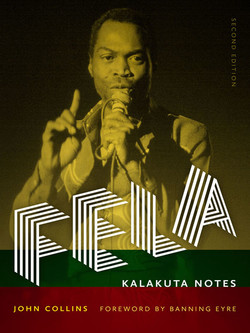Fela

Реклама. ООО «ЛитРес», ИНН: 7719571260.
Оглавление
John Collins. Fela
Отрывок из книги
JOHN COLLINS
FOREWORD BY BANNING EYRE
.....
By the late 1960s there was a creative explosion among African musicians who had been influenced by rock and soul music introduced through records and films. First, early rock ’n’ roll and its associated twist dance became a craze with urban African youth. This was followed by the progressive and psychedelic rock music of the later Beatles, Eric Clapton’s Cream (that included the drummer Ginger Baker), Jimi Hendrix, Sly and the Family Stone, as well as the Latin-rock fusion of Santana—all of which fostered a more experimental spirit among young African pop musicians. Enhancing this impact on African musicians was that both Ginger Baker and Paul McCartney worked in Nigeria in 1971 and 1973, respectively, while Santana played in Ghana in 1971. At the same time soul music and its “funk” offshoot with their extended dance grooves and associated “Afro” fashions became the craze of urban African youth. Soul also spread an Afrocentric “roots” message as found, for instance, in the “Say It Loud—I’m Black and I’m Proud” lyrics of James Brown. In fact his records became so popular that he and his J.B.’s band toured Nigeria in 1970.
As a result of the back-to-roots and innovative energy contained in these new forms of imported popular music, many young African artists who had been copying rock and soul music began to dig into their own indigenous musical resources and develop various new forms of Afropop music, such as Afro-rock, Afro-soul, Afro-funk, and Afrobeat. Afro-rock was created around 1969–70 by the London-based group Osibisa that included Ghanaian, West Indian, and Nigerian musicians and was led by three Ghanaian ex-highlife dance-band musicians: Mac Tonto, Sol Amarfio, and Teddy Osei.
.....